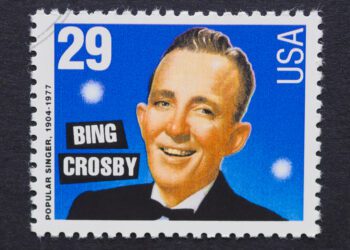Sony Music has cancelled the debts of thousands of artists who signed to the record label before the year 2000.
Sony Music has cancelled the debts of thousands of artists who signed to the record label before the year 2000.
It means that many will now, for the first time, earn money when their songs are streamed on services like Spotify and Amazon Music.
Sony said it could not name the eligible acts due to confidentiality agreements, but a source said it would “include household names.”
Musicians typically take on debt when they first sign to a record label. They are given a lump sum, known as an advance, to pay for recording studios, video shoots, distribution and other expenses. The money is then paid back when they sell their music.
However, many artists never earn enough to repay their advances, often because they get unfavourable royalty rates from their own record companies. Heritage black artists have been particularly affected.
And until the debt to their label is repaid, those artists are not eligible to receive income from streaming, and other royalty payments.
That’s how an act like TLC, who were signed to Sony subsidiary LaFace Records, ended up declaring bankruptcy in the 1990s.
The R&B stars declared debts of $3.5m, despite having one of the decade’s best selling albums, CrazySexyCool.
What has Sony said?
Sony’s announcement came in a letter to artists on Friday.
“We are not modifying existing contracts, but choosing to pay through on existing unrecouped balances to increase the ability of those who qualify to receive more money from uses of their music,” it said.
In other words, the debt hasn’t been explicitly wiped out—but Sony will ignore it and pay royalties to affected acts, backdated to January 1, 2021.
Why is Sony doing this now?
Sony’s initative comes amid mounting pressure on the record industry to be more transparent about the way it distributes money, particularly from streaming services.
Sony is not the first company to take such a step. Indie label Beggars Group, which is home to acts like Grimes, Jarvis Cocker and The xx, has previously written off unrecouped balances on older contracts. However, Sony is the only major label to do so.
Its direct competitors, Universal and Warner Music, may feel they should follow suit.
Meanwhile, Sony’s move could enable heritage artists to sell their song catalogues to interested buyers—as Bob Dylan, Blondie and Barry Manilow have all recently done.
“There are plenty of funds out there looking to buy catalogues at multiple of 10 times and above [in exhange] for artist royalties,” music consultant Alasiter Moughan said in a note. “If an artist was unrecouped a potential buyer might want the artist to pay this balance back or not purchase the royalties at all, as no actual cash would be flowing through.
“This change in policy from Sony could be significant for an artist in this position.”












